CBD tolerance – do you need to take a break?
Estimated reading time: 10 minutes
Table of contents
Introduction
If you have recently discovered that your CBD oil is not working as well as it used to. or maybe if you have never experienced any benefits from CBD oils, it is possible that your dosage could be the culprit. What is CBD tolerance and CBD reverse tolerance?
Over time, when we introduce either natural or synthetic compounds into our bodies, we can build up a tolerance. This means that you may require higher doses of CBD to achieve the same desired effects, unlike THC. Can you build a tolerance to CBD? – Let us take at this intriguing subject.
What is tolerance?

Tolerance is a complex concept that is used in many different contexts by people. Within the field of human physiology, it describes the body's progressively waning reaction to a chemical or its effects. This are most noticeable after repeated exposure or ingestion.
There are three main categories into which this phenomenon can be divided: cellular, behavioral, and metabolic.
Cellular Tolerance: At the cellular level, tolerance is often evaluated within the intricate network of neurons and supporting cells. Even within an isolated neuron, underscoring its microscopic complexity.
Behavioral Tolerance: Behavioral tolerance manifests as a learned decrease in the disruptive impact of drugs on intentional actions. Signifying its linkage with cognitive learning processes undertaken during intoxication.
Metabolic Tolerance: Metabolic tolerance emerges when the body acclimatizes to a substance, necessitating either heightened quantities of the initial substance or a different substance to replicate the effect.
Therefore, tolerance is a broad notion that covers a variety of areas. However, what about CBD tolerance specifically?
What is CBD tolerance?
A common concern among CBD users is the development of tolerance – a state where the body becomes accustomed to a drug, requiring higher doses to achieve the same effect. However, CBD's interaction with the ECS is unique. Research suggests that CBD may exhibit a phenomenon known as “reverse tolerance.” This means that over time, users might need smaller doses for the same effects, as CBD enhances the ECS's efficiency.
CBD Tolerance: What the Research Says

The body of research on CBD is growing, but it is still in its nascent stages. Studies have shown that CBD does not bind directly to the main cannabinoid receptors, CB1 and CB2, unlike THC. This indirect interaction reduces the risk of tolerance. Moreover, CBD might even counteract THC's tolerance-building effects, making it a compound of interest for long-term therapeutic use.
Personalized CBD Experience: Finding Your Balance
Every individual's interaction with CBD is unique. Factors like body chemistry, the quality of CBD products, and the method of consumption play a significant role in how one is body responds. It is crucial to start with low doses and gradually increase based on personal experience and, if possible, under the guidance of a healthcare professional.
High-Quality CBD: A Key to Consistency
The quality of CBD products is paramount. Products that are full-spectrum, containing a range of cannabinoids, are often preferred for their entourage effect – a synergistic interaction that enhances the overall therapeutic benefits. Always opt for products from reputable sources that provide third-party lab testing results for purity and potency.
Common Misconceptions about CBD Tolerance
There is a ton of misinformation surrounding CBD. One common myth is that taking CBD regularly will lead to increased tolerance and decreased effects. However, due to its unique interaction with the ECS, CBD maintains its efficacy over time, and users might not need to continually increase the dose.
Can you take too much CBD?

Yes, it is possible to take too much CBD. However, CBD is generally considered safe, even in high amounts, and it does not lead to lethal overdose. Nonetheless, excessive CBD consumption can result in discomfort, as any substance that affects how you feel can potentially have side effects, although they are usually not severe.
Here are some common side effects of taking too much CBD:
- Fatigue
- Dry mouth
- Loss of appetite
- Low blood pressure
- Nausea and vomiting
- Diarrhoea
Fortunately, the discomfort from overconsumption typically subsides once the CBD has left your system, usually within 2-3 hours. To minimize the risk of discomfort, it is advisable to start with lower CBD doses and gradually increase them over time until you achieve the desired effects.
It is important to note that CBD can interact with other medications, potentially leading to unwanted effects. Therefore, it is crucial to consult with your doctor before using CBD oil to treat a specific medical condition to ensure it is safe and compatible with your current medications.
How Fast Does CBD Tolerance Build?
CBD tolerance varies from person to person and can be influenced by various factors such as age, weight, sex, experience with CBD, metabolism, genetics, and the amount of CBD you are using. Unlike some substances, CBD tolerance typically develops slowly, and it is not associated with severe withdrawal symptoms or dependence.
Here is a breakdown of key points about CBD tolerance:
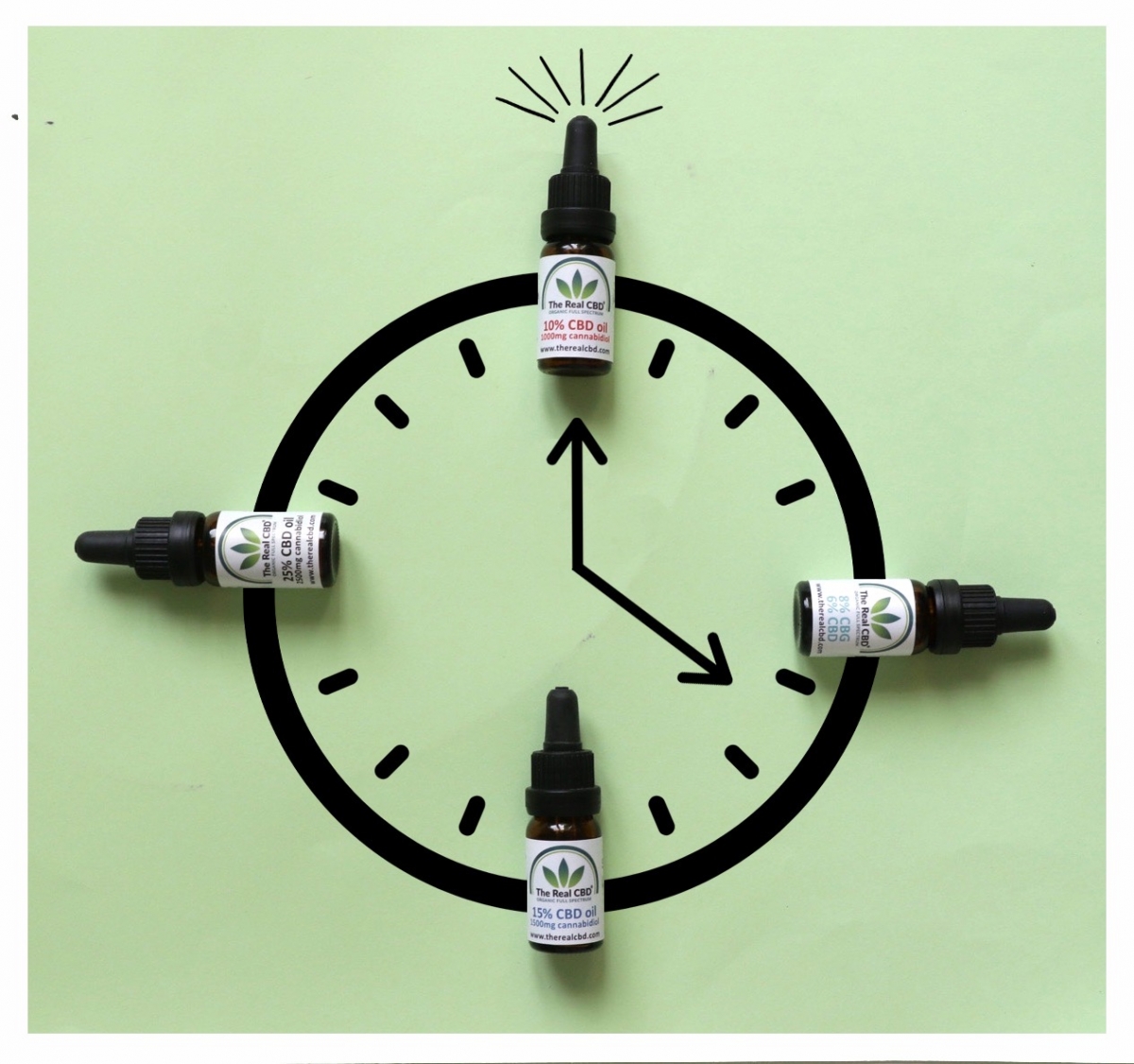
- Individual Variability: The rate at which CBD tolerance builds can differ significantly among individuals. Your body's response to CBD may change over time, and your optimal dosage may vary depending on your unique characteristics.
- Endocannabinoid System: CBD interacts with the endocannabinoid system, which plays a role in maintaining balance (homeostasis) in the body. This means that your CBD needs may fluctuate based on your body's current state and requirements.
- Trial and Error: Finding the right CBD dosage for you often involves some trial and error. There is no one-size-fits-all approach to dosing, and it may take time to determine the most effective dose.
CBD Tolerance vs. CBD Dependence:
- Tolerance: Tolerance occurs when your body becomes less sensitive to a substance's effects, requiring larger doses to achieve the same results. With CBD, some people may build a tolerance over time, leading them to increase their dosage for desired effects.
- Dependence: Dependence involves experiencing withdrawal symptoms when discontinuing a substance. Unlike some substances, CBD is unlikely to lead to severe withdrawal symptoms or dependence, even with long-term use.
Reverse Tolerance:
- Reverse Tolerance: Reverse tolerance, also known as sensitization, is when you become more sensitive to a substance over time, requiring smaller amounts to achieve the desired effects. Some anecdotal evidence suggests that CBD may have a reverse tolerance effect with long-term use, but more research is needed to confirm this.
CBD's Unique Interaction:
- CBD interacts with the endocannabinoid system differently from substances like THC. It does not directly bind to CB1 or CB2 receptors but promotes receptor activity, facilitating the binding of cannabinoids to receptors and preventing the breakdown of internally produced cannabinoids.
Long-Term Use of CBD: What to Expect
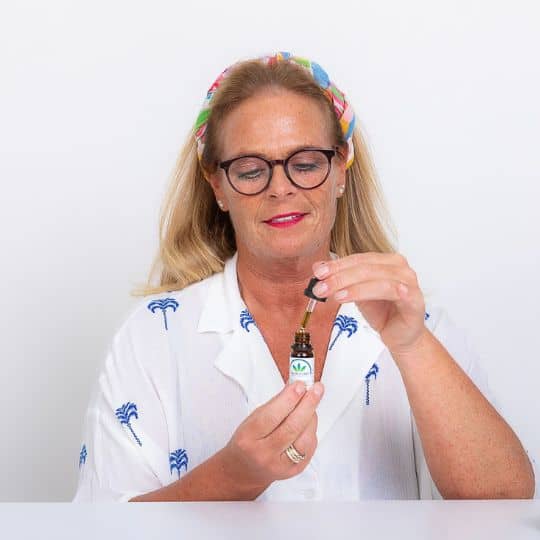
For those considering long-term CBD use, the outlook is promising. Due to the lack of tolerance buildup, users can maintain a consistent dosage over time. Moreover, CBD's safety profile, as highlighted in various studies, makes it a viable option for prolonged use, especially compared to certain pharmaceutical alternatives.
CBD Tolerance vs. Effectiveness: The Ongoing Debate
While research is ongoing, current evidence suggests that CBD maintains its effectiveness over time without significant tolerance development. This makes it an appealing option for those seeking a natural and sustainable approach to wellness.
More about CBD from our orther blogs
Why is my CBD not working?
Five reasons your CBD may not work!

Here are five reasons why CBD may not be working for you and some solutions to consider:
Low-Quality CBD Products:
The CBD industry is relatively new and poorly regulated, leading to subpar products. To ensure quality, look for third-party lab tests and read consumer reviews before purchasing. Reputable brands send their products for independent testing to confirm CBD content and check for contaminants like solvents, heavy metals, pesticides, or mold.
Finding the Right Dose:
CBD dosing varies from person to person due to genetics, experience, metabolism, and health conditions. Start with a lower dose and gradually increase it over a few days until you find your optimal dose. Keep track of your doses in a journal or notes app for reference.
Consistent Use:
CBD is not an instant solution; it may take days or weeks of consistent use to notice significant effects. CBD works by making receptors more sensitive to internal cannabinoids. Consider taking CBD at the same time each day, such as with your vitamins or before bedtime for better results.
Choosing the Right Delivery Method:
Different CBD delivery methods offer various effects. For localized issues like muscle aches, topicals like lotions and salves work well. However, for overall health support or mood improvement, consider capsules, oils, or gummies that enter the bloodstream. If vaping CBD seems to lose effectiveness over time, switch to edibles.
Tolerance to CBD:
Long-term CBD use can lead to tolerance, requiring higher doses for the same effects. To reset your tolerance, consider taking a break from CBD for 3-7 days. Keep a record of your CBD usage, symptoms, and changes during the tolerance break for future reference.
These tips can help improve your CBD experience and ensure you get the most out of your CBD products. Remember that finding the right CBD product and dosage may require some patience and experimentation, as individual responses to CBD can vary.
Conclusion

Yes, it may be possible to build a tolerance to CBD, but the mechanisms behind CBD tolerance are still not fully understood. Some individuals may even experience reverse tolerance with long-term CBD use, where they become more sensitive to its effects over time. However, we needs more research to confirm this phenomenon.
If you find that your CBD product is no longer as effective as it used to be or if you've never experienced any benefits from CBD, here are some steps you can take:
- Choose Reputable Brands: Be cautious of brands that make exaggerated medical claims about their CBD products. Stick to reputable brands that provide third-party lab testing to verify the product's CBD content and safety.
- Experiment with Doses and Delivery Methods: Everyone's response to CBD is unique, so it's important to experiment with different doses and delivery methods. Start with smaller amounts and gradually increase them until you find what works best for you. Different delivery methods, such as oils, capsules, or gummies, can also produce varying effects.
- Consider Taking Breaks: If you have built a tolerance to CBD and it's no longer as effective, taking occasional breaks from CBD use may help reset your tolerance. Many people report success with tolerance breaks lasting 3-7 days.
Fortunately, CBD is generally well tolerated, and there are various delivery methods to explore to achieve your desired results. If you are interested in learning more about CBD, you can visit our blog for additional resources.
The Real CBD Best Sellers
-
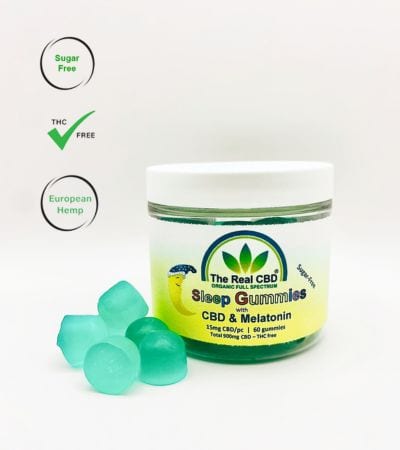 CBD Sleep Gummies€29.00
CBD Sleep Gummies€29.00 -
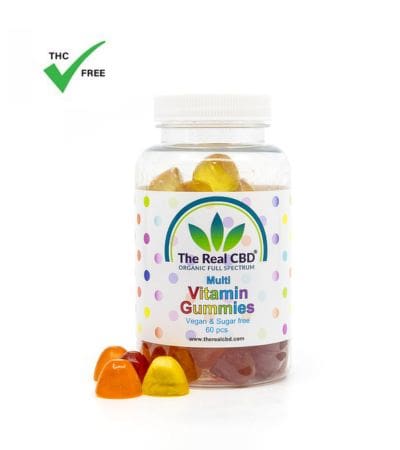 Multivitamin gummies€15.00
Multivitamin gummies€15.00 -
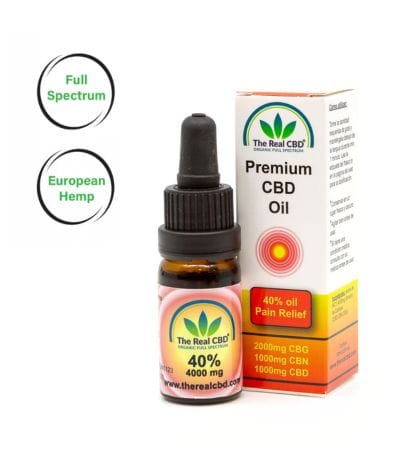 40% Pain Relief oil€179.00
40% Pain Relief oil€179.00 -
Product on sale
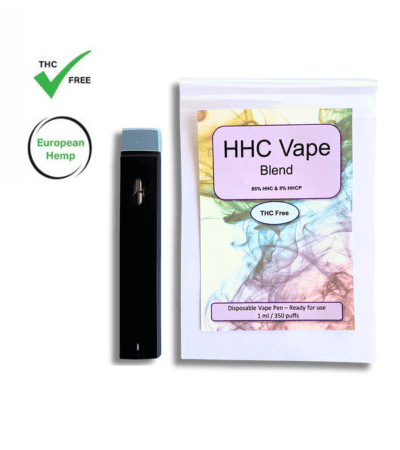 HHC VapeOriginal price was: €55.00.€35.00Current price is: €35.00.
HHC VapeOriginal price was: €55.00.€35.00Current price is: €35.00. -
Product on sale
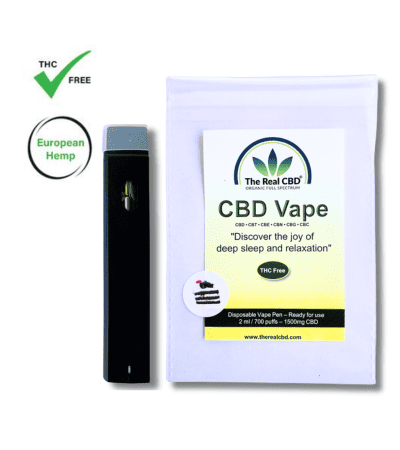 CBD Vape – Broad Spectrum€30.00 – €45.00
CBD Vape – Broad Spectrum€30.00 – €45.00 -
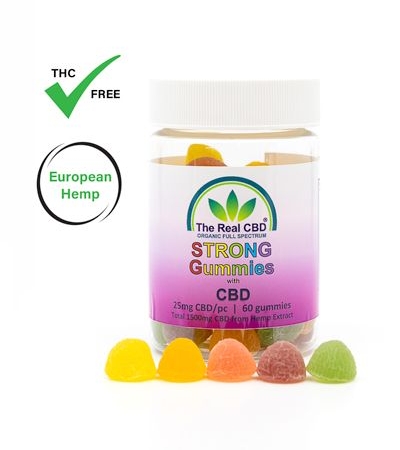 CBD gummies – 25mg CBD€36.00
CBD gummies – 25mg CBD€36.00 -
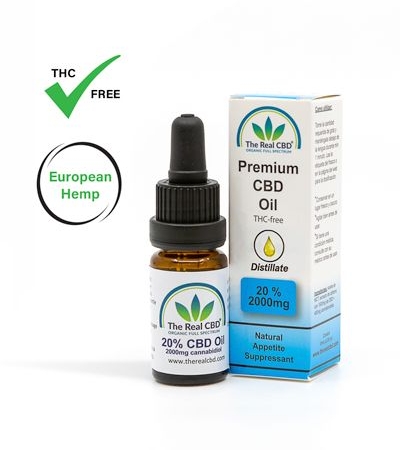 20% CBD oil – Distillate€92.00
20% CBD oil – Distillate€92.00 -
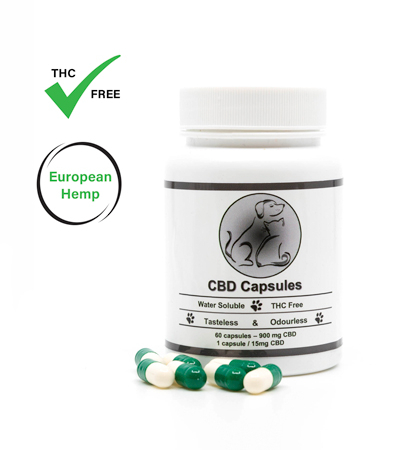 5% CBD Capsules for Pets€59.00
5% CBD Capsules for Pets€59.00 -
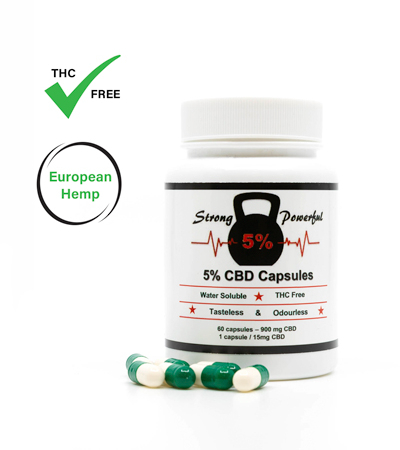 CBD Capsules for Athletes€59.00
CBD Capsules for Athletes€59.00 -
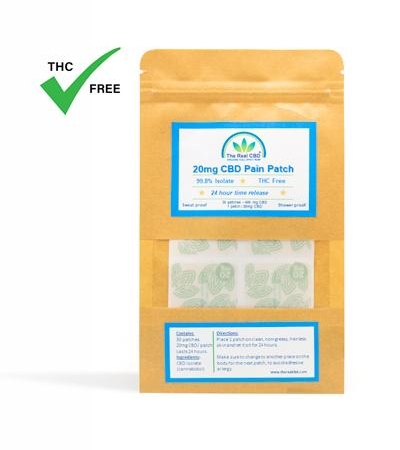 CBD Pain Patch 20mg€55.00
CBD Pain Patch 20mg€55.00 -
Product on sale
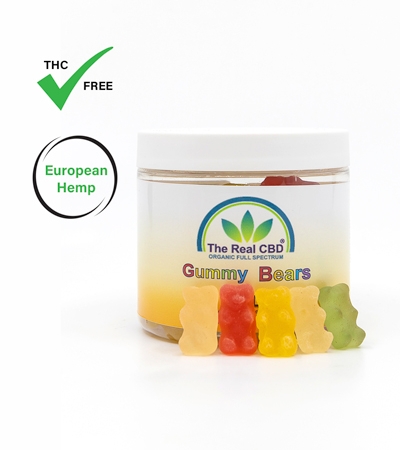 CBD Gummy Bears – 5mg CBDOriginal price was: €19.50.€14.50Current price is: €14.50.
CBD Gummy Bears – 5mg CBDOriginal price was: €19.50.€14.50Current price is: €14.50. -
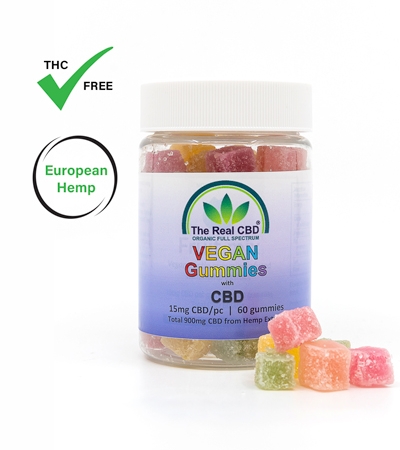 CBD Vegan gummies – 15mg CBD€29.00
CBD Vegan gummies – 15mg CBD€29.00

I am a certified expert in Medicinal Cannabis. We are all about giving correct and trustworthy information. We know how important it is to learn about CBD and cannabis, which is why we want to be your go-to source for trustworthy information. We help you improve your health by using our knowledge and experience as a starting point.


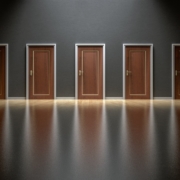
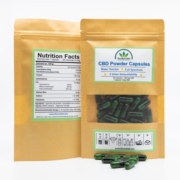

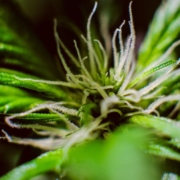

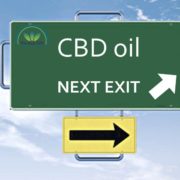






Leave a Reply
Want to join the discussion?Feel free to contribute!